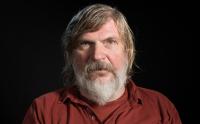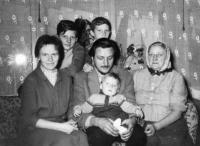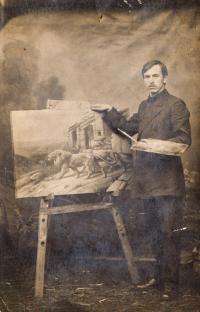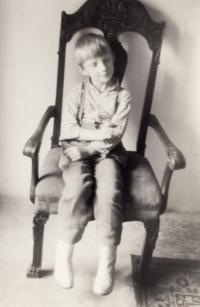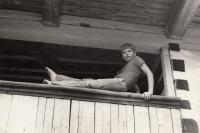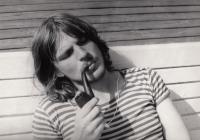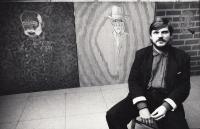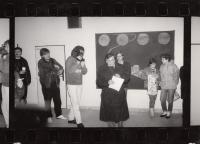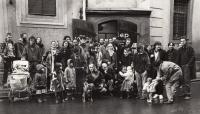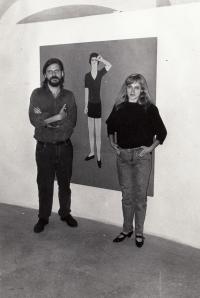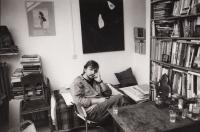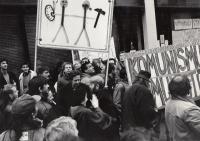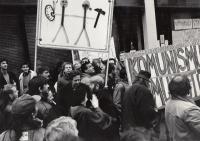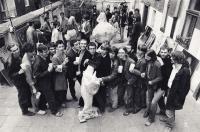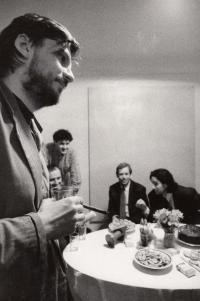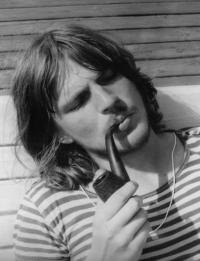Our generation was lucky to experience November 1989

Stáhnout obrázek
Tomáš Císařovský was born on 2 January 1962 in Prague. In 1982 he completed his training in wood shaping and woodcarving at the Secondary School of Industry and Art in Prague. In 1983 to 1988 he studied at the Academy of Fine Arts. Both his parents signed Charter 77, so he was clear on his opposition to the Communist regime from his early childhood. He and his peers presented their works at unofficial exhibitions of young artists, termed Confrontations. After 1989 he became one of the most respected Czech painters. He exhibited in a number of countries. His key works include the cycle of paintings called From the Diary of My Granddad the Legionary, which he conceived as the fulfilment of the dream of his grandfather, who had wanted to be a painter but had fought in World War I instead. His cycle of portraits of Czech nobility, Horseless, is also well known. His oeuvre is present in a number of public and private collections. His wife is the painter Erika Bornová, the daughter of eminent painter Adolf Born.
